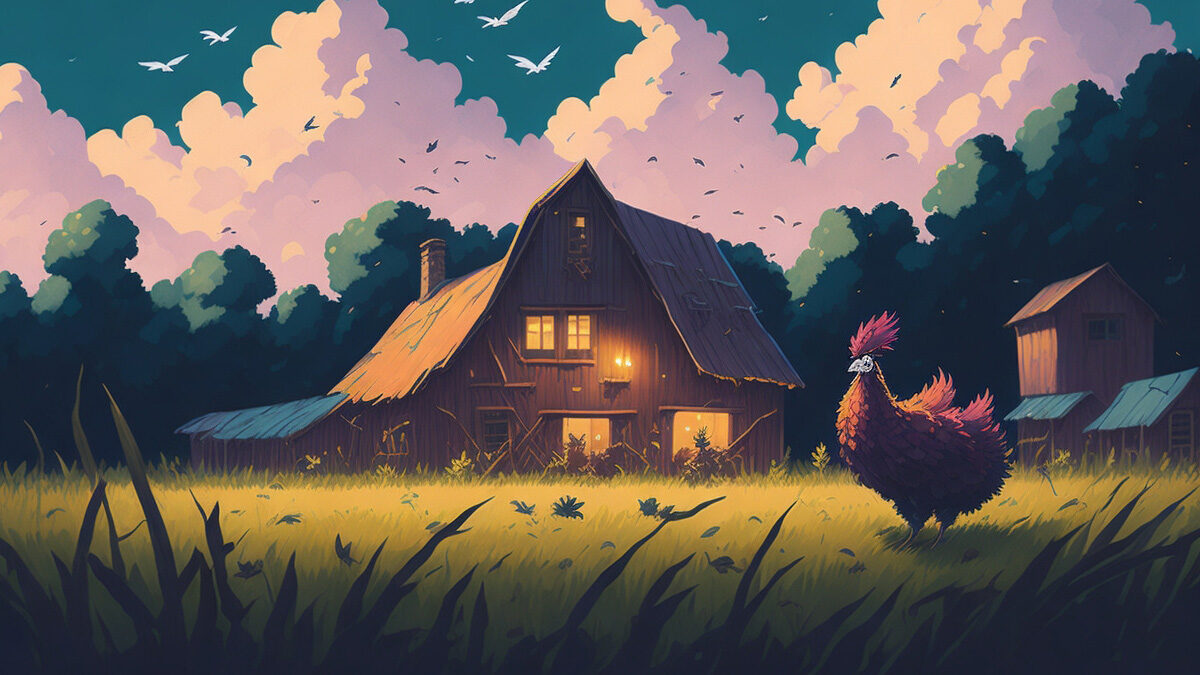“The Hen Who Dreamed She Could Fly” by Sun-mi Hwang is a heartwarming and emotional tale that explores the journey of Sprout, a battery hen with dreams of motherhood and independence. Through this beautifully crafted story, Hwang captures the essence of courage, sacrifice, and the power of following one’s dreams. In this article, we will delve into the rich world-building, compelling characters, and thought-provoking messages conveyed in this remarkable book.
A World of Animal Characters and Sacrifice:
One of the most notable aspects of this book is how the animal characters, regardless of their colour, justify their actions, offering readers valuable insights into the sacrifices parents make for their children. Hwang’s skilful character development allows us to empathize with each character and understand the depth of their choices. Sprout’s journey towards independence becomes a universal tale of resilience, highlighting the importance of protecting and striving for a better life for oneself and future generations.
A Light and Accessible Writing Style:
Hwang’s writing style is a delight to read, characterized by its lightness and accessibility. The book’s concise length of just over 100 pages makes it a quick and enjoyable read for individuals of all ages. The author’s choice of language and sentence structure ensures that readers can easily comprehend and engage with the story, adding to the book’s universal appeal.
The Power of Dreams and Resilience:
At its core, “The Hen Who Dreamed She Could Fly” conveys a powerful message about the significance of having dreams, regardless of societal expectations. Sprout’s unwavering determination and courage in pursuing her dreams serve as a testament to the human spirit. The book encourages readers to embrace their passions, strive for their desired outcomes, and never give up on what they love.
Unique Character Portrayal and Sympathetic Villains:
The book stands out for its portrayal of characters in shades of black and white, providing a refreshing perspective on the motivations and actions of both heroes and villains. Even the antagonists receive sympathy, adding complexity and depth to the narrative. This nuanced approach enriches the storytelling, giving readers a fresh experience and challenging preconceived notions of right and wrong.
Imagery and World-Building:
Hwang’s ability to convey vivid imagery through animal characters is a testament to her storytelling prowess. By using these creatures to tell a larger story, she paints a picture of a peaceful life among preyed animals, showcasing their struggles to survive and coexist. The book’s immersive world-building allows readers to escape into a world where nature and animals intertwine, evoking a sense of tranquillity and serenity.
A Balanced and Justified Ending:
“The Hen Who Dreamed She Could Fly” offers a beautifully balanced ending, encapsulating both sadness and happiness, much like the yin and yang of life. Hwang masterfully resolves the story, providing closure while leaving room for reflection. It is a testament to the author’s skill in crafting a satisfying conclusion that stays true to the themes of the book.
Emotional Impact and Recommendation:
This emotional tale has the power to move readers to tears while also bringing moments of joy and inspiration. “The Hen Who Dreamed She Could Fly” is a perfect read for those who enjoy animal world fiction with a deeper underlying story about courage, sacrifice, and the importance of dreams. Whether you are an avid reader or someone seeking a heartwarming and thought-provoking story, this book comes highly recommended.
“The Hen Who Dreamed She Could Fly” is a remarkable literary gem that touches the hearts of readers. It is a book that will make you laugh, cry, and reflect on the power of dreams and the resilience of the human spirit. Whether you are a fan of animal world fiction or simply seeking a beautifully crafted story that explores profound themes, this book is a must-read. Prepare to be swept away on an emotional and transformative journey as you delve into the pages of this extraordinary tale by Sun-mi Hwang.
Listen to what the senior editor, John Siciliano, of Penguin Korea has to say about the book here.
An Honest Review of "The Hen Who Dreamed She Could Fly" by Sun-mi Hwang
Related posts
Archives
- June 2023 (1)
- May 2023 (3)
- January 2023 (1)
- December 2022 (1)
- July 2022 (1)
- June 2022 (7)
- May 2022 (1)
- April 2022 (1)
- March 2022 (2)
- February 2022 (2)
- December 2021 (1)
- October 2021 (2)
- September 2021 (11)
- August 2021 (25)

